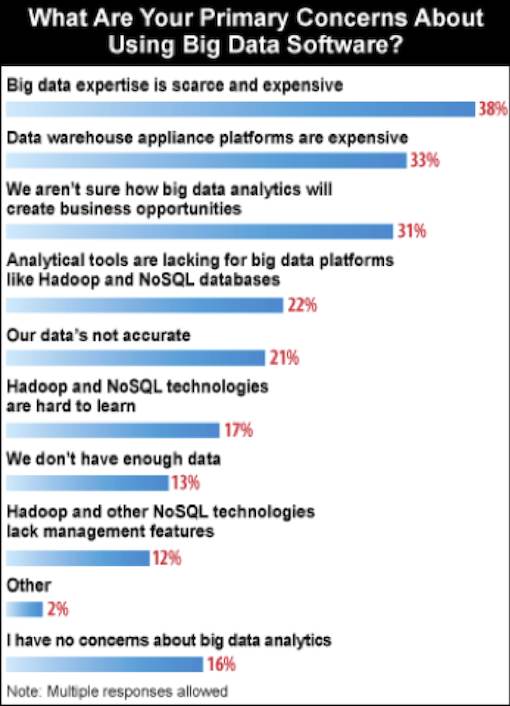According to a story by Information Week, Big Data alone does not necessarily provide the right answers, and other factors are equally important for decision-making.
![]()
When embarking on Big Data projects don’t ignore the “Little Data”. Ron Johnson, the former CEO of J.C. Penney made big changes in how the company conducted its business. Using Big Data analytics Johnson found that customers did not but until prices were marked down 27%. Using that information he ended the practice of discounting and instituted an “everyday low price” strategy. He also had analysis showing that the optimal product mix was 75% branded product, and 25% private label. Johnson implemented these changes, cut the company’s on-line product offerings, and added in-store destination shops such as Sephora. The result of these changes was opposite to the predictions. Sales fell from $17 billion in 2011 to $12.9 billion in 2012. Customer behavior was to expect a discount, and private labels accounted for 40% of the revenue. Johnson is now the ex-CEO.
JCP’s new CEO, Myron Ullman, looked at the data and decided private labels were the most profitable. Now he is spending heavily on promotion and will reinvest aggressively in e-commerce. “Clearly we gave up a lot of Internet business, which we’re happy to take back,” said Ullman.
How did two people see the same data and reach different conclusions? Big Data may in fact complicate the decision making process, because while it may provide data, one needs to ask the right questions. Penney’s assumed from the data on buyer behavior that the new pricing policy would increase sales, and ignored years of customer expectations which were to wait until products were discounted.
Information Week surveyed 417 respondents at organizations using or planning to deploy Big Data analytics and found the results summarized in the chart below. Concerns exist when deploying Big Data in the areas of accuracy, completeness, and management of the data itself.

While Big Data mining places an emphasis on activities such as social media monitoring and macro trend analysis, there are other data that are equally important for decision-making. This other routine data includes things such as detailed financials, customer records, store traffic, CRM information, product quality, store traffic, and website visits.
Read the Full Story.




